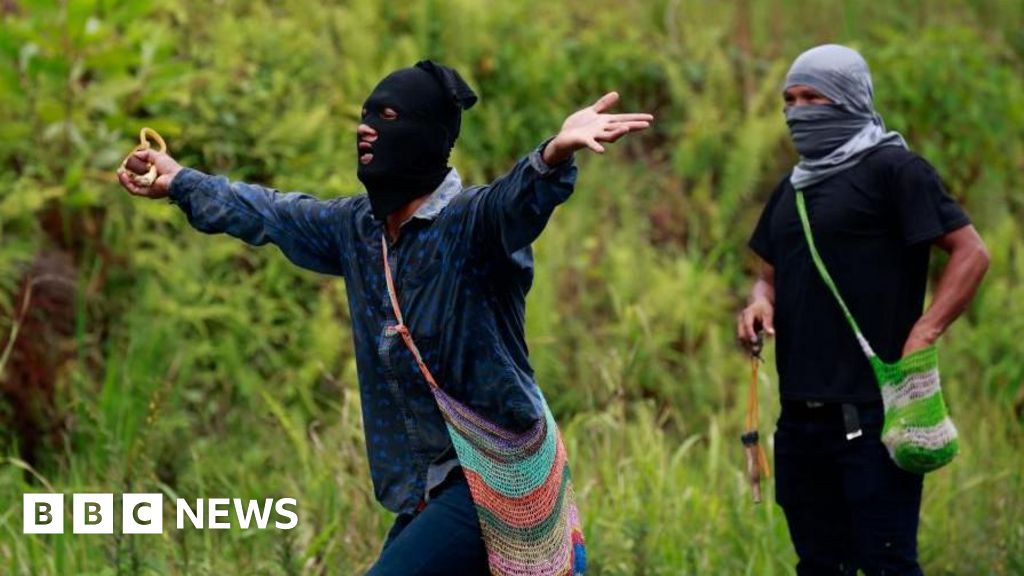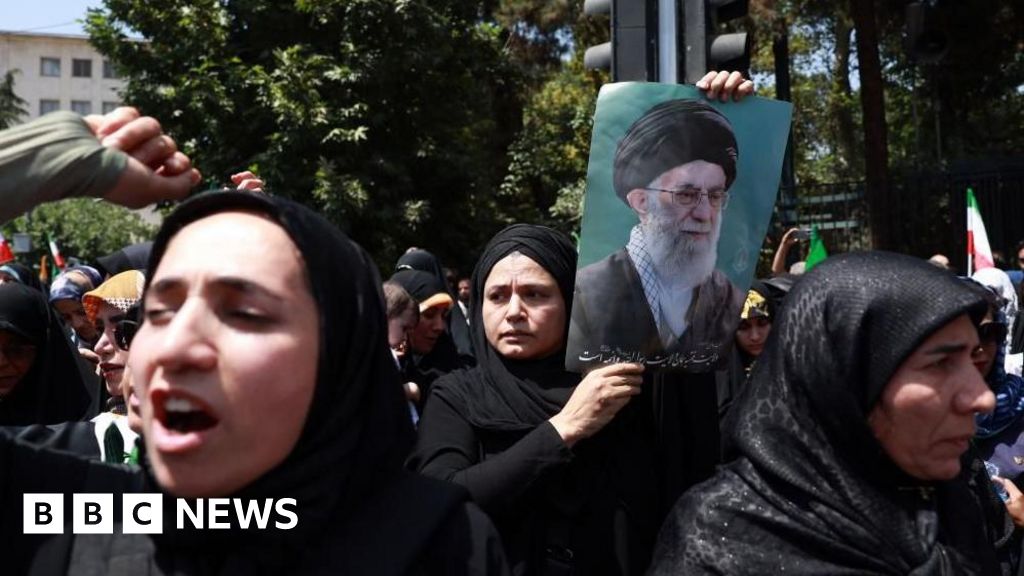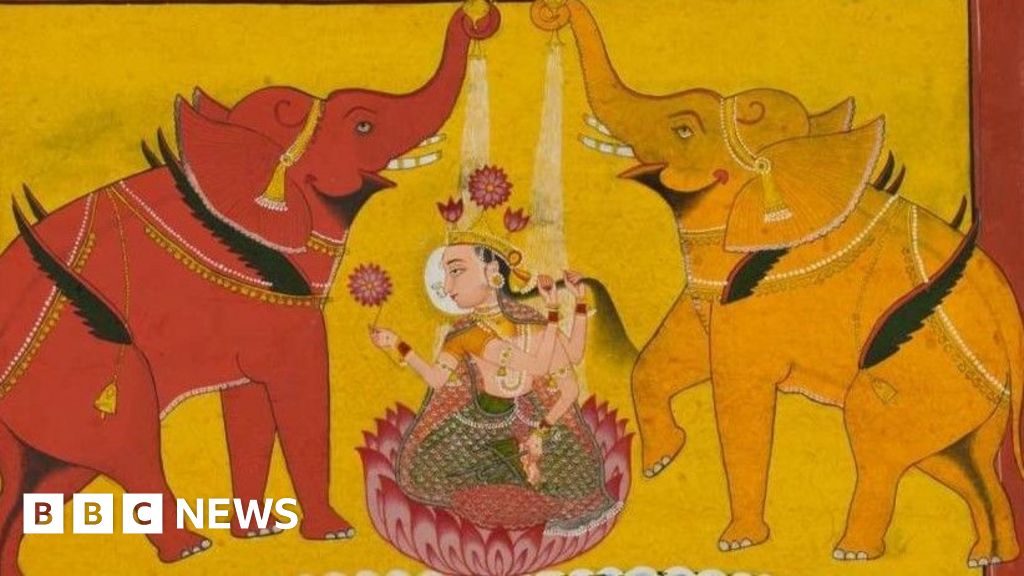A restless crowd of people under a blazing morning sun pressed up to an immigration official in a remote corner of Mexico, each person begging to get on a flight out.
They were not trying to get to the United States, as many of them had hoped to not long ago. Now they were trying to get back to Venezuela — or simply escape this town — if only they had the passports, paperwork or the means to leave.
There are at least 3,000 Venezuelans stranded in Tapachula, a sweltering city near the southernmost point of Mexico that was once a gateway for migrants entering from Guatemala. Not long ago, thousands trudged through its streets, overflowing shelters and sleeping in courtyards, parks and plazas.
But the city has grown still. Shelters sit empty. Parks where families had crowded lie deserted.
Now, the movement is in reverse. One by one, people board buses, retrace their steps by foot, or float back across the Suchiate River — back to Guatemala, and to their native countries.
They are part of a growing wave of reverse migration: People who, in the face of President Trump’s hard-line policies, have made the painful choice to return to the countries they once fled — places scarred by violence, poverty and climate change — abandoning, at least for now, their dreams of a better life.
The thousands who remain in Tapachula lack the paperwork or resources to do anything but wait. Mexico’s immigration restrictions, adopted under pressure from the Biden and Trump administrations, bar them from even leaving the city, and they cannot easily get back to Venezuela, either.
“We are trapped here,” said Patricia Marval, 23, a Venezuelan who is eight months pregnant and struggling to care for three children in a one-room, cinder-block shack.
Every day, her partner tries to scrape together a few pesos in a carpenter’s shop — just enough for rice and tortillas, but never enough for diapers for their 1-year-old, Siena. Some nights, hunger claws at them in their sleep, she said.
The despair is so crushing that Ms. Marval said she has even considered asking a neighbor to take one of the children, so they could at least eat three times a day. “If I could leave one of them, I would,” she said, sobbing. “But I just can’t.”
There are around 8,000 to 10,000 migrants in similar straits scattered across the southern state of Chiapas, according to Eduardo Castillejos, under secretary of a state government agency handling migrant affairs along the southern border. Most are from Venezuela, Cuba and Haiti, and had intended to reach the United States.
But it is Venezuelans, he said, who are the most desperate to leave — and who face the steepest obstacles. With no resources and no travel documents, “these people have simply run out of alternatives,” Mr. Castillejos said. “They are facing a very dark situation.”
He said more resources were needed to employ and integrate migrants, not only in Chiapas, but across the country. “Mexico is no longer just a transit country — we’re becoming a destination,” he said. “We need to adapt to that reality.”
The Mexican government, trying to stave off the harsh tariffs threatened by Mr. Trump, has intensified efforts in recent months to stem the flow of migrants heading toward the U.S. border.
The migrants in Tapachula are not allowed to leave the city or the state without a special migrant permit granted after applying for asylum, a process that can take months. Those who try to leave without proper documents often encounter immigration checkpoints on buses and highways, where officials routinely detain travelers without the required papers, according to interviews with dozens of migrants and rights advocates.
Those willing to leave the country face hurdles, too, with many lacking valid passports, transit permits or identity documents. Those with no means to make the long journey must wait to get selected for a humanitarian flight provided by Mexico — and for the Venezuelan government to approve their return.
There are currently thousands of people on the waiting list for a flight to Venezuela, according to an official who was speaking to migrants but refused to give her name because she was not allowed to talk to journalists.
“This is like being in prison because we can’t go anywhere,” said Mari Angeli Useche, 24, who left Venezuela eight months ago, hoping to reach the United States, and now hopes she can get on a humanitarian flight to Venezuela before giving birth. She is due in about three months.
For some, especially those who have already traveled for years, the wait is unbearable.
Keila Mendoza, 34, fled Venezuela eight years ago, heading to Colombia and hoping to eventually reach the United States. Along the way, she met her partner and gave birth to her children, now 7 and 3.
They arrived in Tapachula six months ago, and their nightmare began. Criminals kidnapped Ms. Mendoza for seven days, she said, demanding ransom and stealing what little money the family had scraped together. Soon after, her partner abandoned them.
Now, Ms. Mendoza does menial work at a local convenience store, trying to cover food and rent — though often there is not enough for either. “Sometimes I don’t make any money and can’t feed my sons,” she said.
The only documents she has are her boys’ identification papers, proving their Colombian citizenship. Desperate as she is, the idea of returning to the country she escaped years ago fills her with dread.
“I want to go home, but there’s nothing waiting for me,” she said. “How do you start a life again from nothing?”
Even those documents are more than many migrants have. Among the people marooned in Tapachula are women who have raised families across the long journey out of Venezuela. Some gave birth in places like Peru and Colombia, bringing children who now hold different nationalities — but no official papers to prove who they are. Without even birth certificates or passports, their uncertain futures hang even more in the balance.
“I am desperate to go but I can’t, I don’t know what to do,” said Ms. Marval, who has three children: Alan, 7, who was born in Venezuela; Ailan, 4, who was born in Colombia; and Siena, 1, who was born in Peru.
Crushed by a sense of hopelessness, she said she had, at times, contemplated ending her own life. But the thought of inflicting deeper pain on her children has kept her from doing anything, she said.
Many of the mothers feel that their only choices left are impossible ones. Marielis Luque, who left Venezuela eight months ago with her two daughters, trekked through seven countries before their progress was halted in Mexico.
She was kidnapped in Tapachula and made to pay $100 for her freedom, she said, a nearly unobtainable sum for many in the city.
“I regret ever coming here and putting my two daughters through all of this,” she said with tears in her eyes. “But staying in Venezuela would have made me a bad mother, too.”
Increasingly, those who can return south choose to do so.
Near the city’s downtown, a group of about 30 Venezuelans waited quietly for a bus bound for Guatemala — the first leg of their long journey home. Some had self-deported from the United States, others never made it to that border. But they had two things in common: a desire to return and just enough money to make the trip possible.
“I’d rather go hungry in my country than in a foreign land,” said Deisy Morales, 33, just before she climbed on the bus. “I am going home!”
Mariana Morales and Marian Carrasquero contributed reporting.
Source link

















